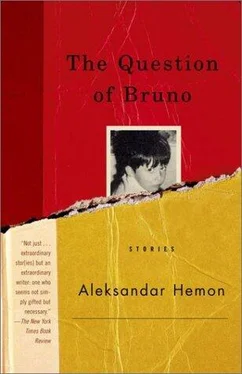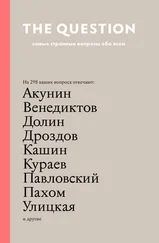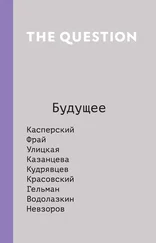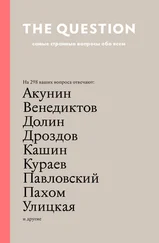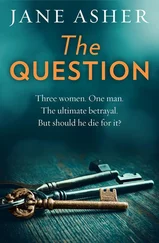We know very well that the route of Napoleon’s army’s retreat went through what is today Belorussia and there’s no plausible explanation for Alexandre ending up in the western Ukraine, near Lvov. Certain factions in the family suggested that higher forces had had a hand in the miraculous (mis)placement of Alexandre. My father — who deems himself to be the foremost authority on the family history and one of its main narrators — dismisses the implausibility with a derisive frown, providing as evidence a map of Ukraine, dating from 1932, on which Smolensk (for example) is just inches away from Lvov.
Be that as it may, Alexandre went astray from the straight road of defeat and found himself, unconscious, in the midst of a pitch-dark forest. He had drifted to the edge of the eternal black hole, when someone pulled him out of it, tugging his benumbed leg. There’s hardly any doubt that that was the great-great-grandmother Marija. Alexandre opened his eyes and saw the angelic smile of a seventeen-year-old girl trying to take off his decrepit, yet still precious, boots. Let me confess that a blasphemous thought has occurred to me: the angelic smile might have been missing a considerable number of teeth, due to the then-common winter scurvy. She, naturally, decided to take him home, unloading the firewood and mounting him on the tired nag (somehow, that was the epoch of tired nags). Her parents, surprised and scared, could not resist her determination, so she made him a bed near the hearth and then nursed him out of his glacial numbness, patiently rubbing his limbs to get the blood started. (Uncle Teodor sometimes likes to add a touch of gangrene at this point.) She fed him honey and lard, and spoke to him mellifluously. Yes, she rekindled his heart and they did get married. Yes, they’re considered to be the Adam and Eve of the Hemon universe.
My mother, who proudly descends from a sturdy stock of Bosnian peasantry, considered all this to be the typical “Hemon propaganda.” And she may well have been right, I’m afraid to say. For we have no well-established facts from which the unquestionable existence of Alexandre Hemon would necessarily follow. There is, however, some circumstantial evidence:
a) At the time of the Winter Olympics in Sarajevo, my sister held in her hand a credit card in the name of a certain Lucien Hemon. Lucien was the rifle manager for the French biathlon team. He told my sister, not hesitating to flirt with her, that Hemon was a rather common family name in Brittany and suggested, after she had managed to tell him the highlights of the family history, that a Napoleonic soldier could have well carried it over to Ukraine. That was the germ from which Alexandre sprung, and the previously dominant theory that “Hemon” was a Ukrainian variation on “demon” was indefinitely suspended.
b) In 1990, a busload of excited Bosnian Ukrainians went to Ukraine in order to perform a set of old songs and dances, long forgotten in the oppressed ex-homeland. While they were staying in a waterless hotel in Lvov, the Hemons decided to venture into the village (Ostaloveschy) that my great-grandfather’s family had left to move to Bosnia. I should point out that there was a widespread belief in the family that we had no kin in Ukraine. As they snooped around the depressed village, mainly populated by bored-to-senility elderly folks, they aroused plenty of suspicion among the villagers, who must have believed that the KGB was onto them again. In antique Ukrainian, just for the hell of it, they questioned toothless men leaning on their canes and fences about Hemons in the village, until one of them pointed peevishly at the house across the dirt road. The man in the house told them that, yes, he was a Hemon, but had no knowledge of any kin in Bosnia. He outright told them that he was no fool and that he knew they worked for the police. They tried to dissuade him from throwing them out, pointing out that police agents and spies do not move around in such large and compact groups — there were fourteen of them, all vaguely resembling one another and scaring the wits out of their poor distant cousin. Next day, the man (his name was, not surprisingly, Ivan) visited them in their dismal hotel, considerately bringing a bottle of water as a gift. They told him, trying to outshout each other, about the exodus to Bosnia, about the family beekeeping, about the legendary Alexandre Hemon. Yes, he told them, he might have heard about a Frenchman being related to the family a long time ago.
Thus it was definitely established by the family that our tree was rooted in glorious Brittany, which clearly distinguished us from other Ukrainians — a people of priests and peasants — let alone Bosnian Ukrainians. Once Alexandre Hemon was officially admitted to the family, the interest for things Gallic surged (and no one much cared for the nuanced differences between the Bretons and the French). My father would unblinkingly and determinedly sit through an entire French movie — French movies used to bore him out of his mind — and then would claim some sort of genetic understanding of the intricate relations between characters in, say, À Bout de Souffle. He went so far as to claim that my cousin Vlado was the spitting image of Jean-Paul Belmondo, which consequently made Vlado (a handsome blond young man) begin referring to himself as “Belmondo.” “Belmondo is hungry,” he would announce to his mother upon returning from work in a leather factory.
Further developments in the Hemon family-name history were propelled — I’m proud to say — by my literary exploits. In the course of attaining my useless comparative literature degree at the University of Sarajevo, I read The Iliad and found a lightning reference to “Hemon the Mighty.” Then I read Antigone , where I discovered that Antigone’s suicidal fiancé was named Hemon — Hemon pronounced as Haemon, just like our family name. In the agon with Creon, Hemon at first looks like a suck-up:
My father, I am yours. You keep me straight
with your good judgment, which I shall ever follow.
Nor shall a marriage count for more with me
than your kind leading.
But then they get into a real argument, and Hemon tells Creon off: “No city is a property of a single man,” and “You’d rule a desert beautifully alone,” and “If you weren’t a father, I should call you mad.”
My father dutifully copied the one page from The Iliad that, toward the bottom, had “Hemon the Mighty” and the handful of pages in Antigone where the unfortunate Hemon agonizes with the cocky Creon. He highlighted every sighting of the Hemon name with a blindingly yellow marker. He kept showing the copies to his co-workers, poor creatures with generic Slavic surnames, which — at best! — might have signified a minor character in a socialist-realist novel, someone, say, whose life is saved by the fearless main character, or who simply and insignificantly dies. My father didn’t bother to read Antigone , never mind tens of thousands of lines of The Iliad , and I failed to mention to him that “Hemon the Mighty” is absolutely irrelevant in the great epic and that Antigone’s illustrious fiancé committed not-so-illustrious suicide by hanging himself.
The following semester, I found a Hemon in The Aeneid , where he makes a fleeting appearance as a chief of a savage tribe. Sure enough, my father added the promptly highlighted photocopy to his Hemon archive. Finally, in Gargantua and Pantagruel , I stumbled upon “Hemon and his four sons” involved in an outrageous Rabelaisan orgy. The Rabelais reference, however, provided the missing link with the French chapter of the family history, which now could be swiftly reconstructed all the way back to 2000 B.C.
There is, unfortunately, a shadow stretching over this respectable history, a trace of murky, Biblical past that no one dared to follow but which the designated, though inept, historian feels obliged to mention: My cousin Aleksandra still remembers the timor and terror she felt when, in church, she heard the priest utter — clearly and loudly — our name. The priest, she says, described a man who stood in the murderous crowd under the cross on which Our Savior was expiring in incomprehensible pain, his eyes (the man’s, of course) bulging with evil, bloodthirsty saliva running down his inhuman chin, laughing away Our Savior’s suffering. “What kind of man is he?” thundered the priest. “What kind of man could laugh at the Lamb’s slaughter? Hemon was his name, and we know that his seed was winnowed and scattered all over this doomed earth, eternally miserable, alone and deprived of God’s love.” Stricken with horror (she was nine), she retched and ran out, while her father, my uncle Roman, who was not paying attention, kept saying “Amen!”
Читать дальше
